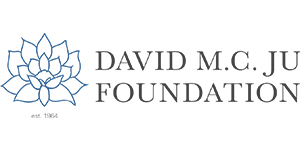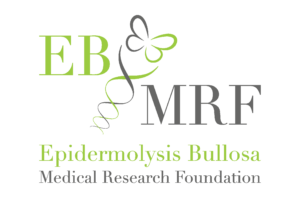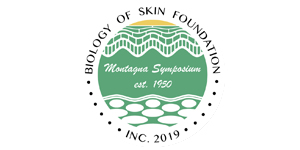Chaired by Anthony Oro, MD, PhD, Eugene and Gloria Bauer Professor at Stanford Medicine, the 2025 Montagna Symposium will focus on emerging paradigms in personalized medicine. Population studies have raised questions about why individuals do not respond to established therapies. Patients are individuals with personalized social, behavioral, and genetic determinants, but knowledge gaps exist regarding how these determinants influence diagnosis and treatment of cutaneous diseases. The goal of this Symposium is to highlight emerging avenues of investigation and streamline their incorporation into clinical medicine for our patients. Program Co-Chairs are Masayuki Amagai, MD, PhD, Professor and Chair, Department of Dermatology, Keio University School of Medicine and Vice President for Research, Keio University, and Aimee Payne, MD, PhD, Herbert and Florence Irving Professor and Chair of Dermatology at Columbia University Irving Medical Center. View Full Pre-Meeting Summary.
2025 Program
(subject to change)
Thursday, October 16
| 2 p.m. – 5:30 p.m. | Arrival and Check-in |
| 4:00 p.m. – 5:30 p.m. | Opening Reception (Heavy Hors d’oeuvres served) |
| 5:30 p.m. – 5:45 p.m. | Welcome and Introductory Comments Symposium Co-Directors: Sancy Leachman, M.D., Ph.D. (University of Utah) Program Chair: Anthony Oro, M.D., Ph.D. (Stanford University) |
| 5:45 p.m. – 6:45 p.m. | Keynote Howard Chang, M.D., Ph.D. This presentation will describe new mechanistic understandings of why autoimmune diseases preferentially affect women and highlight diagnostic and therapeutic opportunities. |
| 7 p.m. | Dinner On Your Own |
| 8 p.m. – 11p.m. | Optional Gathering: Outdoor Firepit |
Friday, October 17
| 7 a.m. – 8 a.m. | Breakfast |
| 8 a.m. – 8:05 a.m. | Announcements |
| 8:05 a.m. – 8:15 a.m. | Session 1: Novel Targets for Engineered Cell Therapies While precision immune therapies have revolutionized blood cancer treatment, new evidence indicates their effectiveness in skin autoimmune and cancers as well. Understanding the mechanistic basis of precision immune therapies and the current patient response remains a gap in knowledge that needs to be addressed. |
| 8:15 a.m. – 8:40 a.m. | Christoph Ellebrecht, M.D. Assistant Professor of Dermatology, University of Pennsylvania Controlling T Cell Fate and Function: Therapeutic Applications from Cancer to Autoimmunity |
| 8:40 a.m. – 8:55 a.m. | Discussion |
| 8:55 a.m. – 9:10 a.m. | Farzan Solimani, M.D. Associate Research Scientist, Columbia University Engineered T cells for autoimmunity: emerging data from human clinical trials |
| 9:10 a.m. – 9:35 a.m. | Jaehyuk Choi, M.D., Ph.D. Professor of Dermatology, Director – Center for Cellular Therapies and Cancer Immunology, UT-Southwestern Genetic Variations Regulating Engineered T-cell Efficacy |
| 9:35 a.m. – 9:50 a.m. | Discussion |
| 9:50 a.m. – 10:05 a.m. | Coffee Break |
| 10:05 a.m. – 10:30 a.m. | Michael Girardi, M.D. Professor of Dermatology, Yale University Strategies Overcoming Challenges Targeting T Cell Lymphoma |
| 10:30 a.m. – 10:45 a.m. | Discussion |
| 10:45 a.m. – 11 a.m. | Umber Dube, M.D., Ph.D. Associate Physician, Dermatology, UC San Diego The Impact of Hematopoietic Stem Cell-Mediated Ex Vivo Gene Therapy on the Skin in Cystinosis |
| 11 a.m. – 11:15 a.m. | Jonathan Park, M.D., Ph.D. Resident Physician, Dermatology, Northwestern University Feinberg School of Medicine Clonal hematopoiesis in primary and CAR T-cell related secondary T-cell malignancies |
| 11:15 a.m. – 11:30 a.m. | Caitlin Frazee, M.S.E. Ph.D. Graduate Student, Department of Dermatology, Perelman School of Medicine, University of Pennsylvania Autoantibody-inducible Chimeric Antigen Receptors (CARs): a self-regulating immunotherapy for durable remission in pemphigus vulgaris |
| Noon – 1:15 p.m. | Lunch Industry Leaders Panel: Breakthroughs in Cell and Gene Therapy (Key takeaways include: recent breakthroughs in cell therapy, industry-academic partnerships and support for IITs, evaluation of early-stage opportunities for licensing/acquisition)
|
| 1:15 p.m. – 1:25 p.m. | Session 2: Tissue Regeneration Therapeutic Approaches Gaps in our medical armamentarium come from the inability to replace many defective tissues due to genetic disease, injury, excessive fibrosis or age. New approaches exist to generate the appropriate genetically corrected tissue or reduce fibrosis, but clinical scale and delivery to the patient remain important hurdles. |
| 1:25 p.m. – 1:50 p.m. | Anthony Oro, M.D., Ph.D. Professor of Dermatology, Associate Director – Center for Definitive and Curative Medicine, Stanford University Manufacturing Multilineage Tissue Replacement Therapies for Genetic Diseases |
| 1:50 p.m. – 2:05 p.m. | Discussion |
| 2:05 p.m. – 2:30 p.m. | Luis Garza, M.D., Ph.D. Professor of Dermatology, Johns Hopkins University Cellular therapy to modify skin identity |
| 2:30 p.m. – 2:45 p.m. | Discussion |
| 2:45 p.m. – 3:10 p.m. | Trevor Parry, Ph.D. VP, Research and Scientific Affairs, Krystal Biotech A redosable HSV-1-based platform technology for localized gene delivery |
| 3:10 p.m. – 3:25 p.m. | Discussion |
| 3:25 p.m. – 3:40 p.m. | Coffee Break |
| 3:40 p.m. – 4:05 p.m. | Dayan Li, M.D., Ph.D. Clinical Scholar, Dermatology, Stanford University Mechanistic insights into fibrosis versus regeneration |
| 4:05 p.m. – 4:20 p.m. | Discussion |
| 4:20 p.m. – 4:35 p.m. | Noha Ahmed, Ph.D. Post-Doctoral Research Fellow, University of Alabama at Birmingham Targeting FKBPs to Promote Regenerative Wound Healing |
| 4:35 p.m. – 4:50 p.m. | Edward Eid, M.D. Basic Life Research Scientist, Dermatology, Stanford Medicine Enhancing the therapeutic potential of intravenous recombinant collagen VII, a protein replacement therapy, for recessive dystrophic epidermolysis bullosa |
| 4:50 p.m. – 5:05 p.m. | Cory Simpson, M.D., Ph.D. Assistant Professor, Dermatology, University of Washington School of Medicine Organotypic models of genetic skin blistering diseases reveal rational therapeutic strategies and guide drug repurposing |
| 5:30 p.m. – 7 p.m. | Dinner and Travel Award Ceremony:
|
| 7 p.m. – 8 p.m. | Poster Reception and Wine Tasting |
Saturday, October 18
| 7 a.m. – 8 a.m. | Breakfast |
| 8 a.m. – 8:05 a.m. | Announcements |
| 8:05 a.m. – 8:15 a.m. | Session 3: Novel Immunomodulatory Platforms for Cutaneous Disease Breaking tissue tolerance forms the basis of tissue rejection and pathogenesis of autoimmune disease, but the mechanisms of immune tolerance and therapeutic targets remain poorly validated. This session addresses a gap in knowledge about small molecule and peptide therapies for immunomodulation. |
| 8:15 a.m. – 8:40 a.m. | Masayuki Amagai, M.D., Ph.D. Professor and Chair of Dermatology, Keio University Director – RIKEN Center for Integrative Medical Sciences Converting Pathogenic Autoimmune T Cells into Antigen-Specific Regulatory T Cells as a Novel Therapeutic Strategy for Pemphigus |
| 8:40 a.m. – 8:55 a.m. | Discussion |
| 8:55 a.m. – 9:20 a.m. | Michael Rosenblum, M.D., Ph.D. Professor of Dermatology, UC-San Francisco Immune Regulation in Skin |
| 9:20 a.m. – 9:35 a.m. | Discussion |
| 9:35 a.m. – 10 a.m. | Megan Levings, Ph.D. Professor of Surgery, University of British Columbia Investigator and Lead – Childhood Diseases, BC Children’s Hospital Inducing tolerance with regulatory T cell therapy |
| 10 a.m. – 10:15 a.m. | Discussion |
| 10:15 a.m. – 10:30 a.m. | Coffee Break |
| 10:30 a.m. – 10:55 a.m. | Michel Enamorado, Ph.D. Assistant Professor of Dermatology, Mount Sinai Medical Center Wired and Guarded: The Neuroimmune Landscape of the Skin |
| 10:55 a.m. – 11:10 a.m. | Discussion |
| 11:10 a.m. – 11:25 a.m. | Poppy Gould, Ph.D. Postdoctoral Research Fellow at NYU Langone Health Restoring aberrant CD74 signaling in hidradenitis suppurativa keratinocytes with Plerixafor treatment |
| 11:25 a.m. – 11:40 a.m. | Ichiro Imanishi, DVM, Ph.D. Postdoctoral Fellow, Icahn School of Medicine, Mount Sinai Spatial Transcriptomic Mapping Reveals a Basophil–Fibroblast Circuit Driving Chronic Type 2 Dermatitis |
| 11:40 a.m. – 11:55 a.m. | Cristina de Guzman Strong, Ph.D. Associate Scientist, Center for Cutaneous Biology and Immunology, Department of Dermatology, Henry Ford Health, Associate Professor, Department of Medicine, College of Human Medicine, Michigan State University Translating knowledge of human skin evolution and genetic innovation to develop new treatments for the skin barrier |
| Noon – 4:30 p.m. | Lunch (On Your Own) FREE TIME / CASCADE HIKE |
| 4:30 p.m. – 6 p.m. | Mentorship Mixer and Reverse Expo Appetizers Served |
| 6 p.m. – 7:30 p.m. | Dinner Poster Competition Awards |
| 7:30 p.m. – 8:30 p.m. | Keynote Jay P. Siegel, M.D. Reflections on the regulation and development of cell-based and other advanced biologic therapies We will discuss the historical basis for and development of the regulatory paradigm for human tissue, cell, & gene therapies; genesis and nature of FDA programs to accelerate development of such therapies, and genesis and functions of the NASEM Forum on Regenerative Medicines. |
Sunday, October 19
| 7 a.m. – 8 a.m. | Breakfast |
| 8 a.m. – 8:05 a.m. | Announcements |
| 8:05 a.m. – 8:15 a.m. | Session 4: Novel Cancer Therapeutics for Cutaneous Oncology This session highlights emerging novel cancer therapy platforms that address gaps in knowledge regarding these future therapies. Understanding the mechanistic basis of novel cancer therapeutics and patient responses will help generate new and more effective technologies. |
| 8:15 a.m. – 8:40 a.m. | Niro Anandasabapathy, M.D., Ph.D. Associate Professor of Dermatology, Weill Cornell Medicine PD-1 and memory T cells, a smoking gun in ICB cancer efficacy and toxicity |
| 8:40 a.m. – 8:55 a.m. | Discussion |
| 8:55 a.m. – 9:20 a.m. | Y. Erin Chen, M.D., Ph.D. Assistant Professor of Biology and Core Member, Massachusetts Institute of Technology and Broad Institute Attending Dermatologist, Massachusetts General Hospital How are commensal skin bacteria sensed by the immune system? |
| 9:20 a.m. – 9:35 a.m. | Discussion |
| 9:35 a.m. – 10 a.m. | Derin Keskin, Ph.D. Principal Scientist, Dana Farber Cancer Institute, Harvard University Immunogenic Personal Neoepitopes for Improving Cancer Therapies |
| 10 a.m. – 10:15 a.m. | Discussion |
| 10:15 a.m. – 10:30 a.m. | Coffee Break |
| 10:30 a.m. – 10:55 a.m. | Anne Lynn Chang, M.D. Professor of Dermatology, Stanford University Clinical trials for non-melanoma skin cancers |
| 10:55 a.m. – 11:10 a.m. | Discussion |
| 11:10 a.m. – 11:25 a.m. | Bojing Jia, Ph.D. M.D./Ph.D Student, University of California San Diego Spatial Genome Alignment: a spatial multi-omic technology for epigenetic mapping with dermatologic applications |
| 11:25 a.m. – 11:40 a.m. | Kasidy Brown, B.S. Ph.D Student, Oregon Health & Science University Dendritic cell intrinsic androgen receptor signaling inhibits anti-tumor immunity in melanoma |
| 11:40 a.m. – 11:55 a.m. | Joel Sunshine, M.D., Ph.D., M.S. Assistant Professor of Dermatology, Pathology, Oncology, and Biomedical Engineering, Johns Hopkins University School of Medicine Non-viral gene delivery to restore antigen presentation in melanoma |
| Noon – 1:15 p.m. | Lunch Industry Leaders Panel #2: Research Idea to Improving Lives: Acceleration through Dermatologic Indications (Key takeaways Include: How and why skin diseases represent an attractive first indication for companies developing novel therapeutics.)·
|
| 1:15 p.m. – 1:25 p.m. | Session 5: RNA Medicines for Cutaneous Disorders This exciting final session focuses on the dramatic shift in research, clinical development, and commercial activity to exploit the many physiological roles of RNA for use in medicine. These include RNA vaccines, siRNAs, circular RNAs, and splice site modifiers for cancer, immunomodulation and genodermatoses. Identifying targets and manufacturing clinical scale RNA therapies remains a gap in knowledge. |
| 1:25 p.m. – 1:50 p.m. | Alain Hovnanian, M.D., Ph.D. Professor of Genetics, University of Paris Laboratory Director, Institut Imagine, INSERM Splice-modulating strategies for treating skin diseases |
| 1:50 p.m. – 2:05 p.m. | Discussion |
| 2:05 p.m. – 2:30 p.m. | John Harris, M.D., Ph.D. Lancer Endowed Chair in Dermatology, Massachusetts General Brigham From Nobel discoveries to clinical breakthrough: How RNA interference is transforming treatments for inflammatory skin diseases |
| 2:30 p.m. – 2:45 p.m. | Discussion |
| 2:45 p.m. – 3:10 p.m. | William Greenleaf, Ph.D. Professor of Genetics, Stanford University Dissecting developmental programs and distal regulation with large-scale, single cell open chromatin data sets |
| 3:10 p.m. – 3:25 p.m. | Discussion |
| 3:25 p.m. – 3:40 p.m. | Jinwoo Lee, M.D., Ph.D., FAAD Instructor, Department of Dermatology, Stanford Novel autoantibodies target hotspots on the XIST ribonucleoprotein complex in female-biased autoimmune diseases |
| 3:40 p.m. – 3:55 p.m. | Richard Wang M.D., Ph.D. Professor of Dermatology, University of Colorado Anschutz Medical Campus Advancing Lipid Nanoparticle (LNP)-mRNA and LNP-siRNA Therapies Using In Vivo Models of Xeroderma Pigmentosum and Psoriasis |
| 5 p.m. – 7:30 p.m. | Salmon Bake Dinner Offsite (weather permitting) |
Monday, October 20
| 7 a.m. – 8 a.m. | Breakfast and Depart |
| 8:30 a.m. | Bus Departs for PDX Airport |
2025 Support
Funding for this conference was made possible (in part) by a grant (5R13AR009431-58) from the National Institute of Arthritis and Musculoskeletal and Skin Diseases. The views expressed in written conference materials or publications and by speakers and moderators do not necessarily reflect the official policies of the Department of Health and Human Services; nor does mention by trade names, commercial practices, or organizations imply endorsement by the U.S. Government.
The Montagna Symposium on the Biology of Skin gratefully acknowledges:
- NIH Grant Number 2 R13 AR009431-58 from the National Institute of Arthritis and Musculoskeletal and Skin Diseases
- Society for Investigative Dermatology (SID) for the SID Eugene M. Farber Travel Awards for Young Investigators
- Journal of Investigative Dermatology
- Japanese Society for Investigative Dermatology (JSID) for the JSID Travel Awards for Young Investigators
- Taiwanese Society for Investigative Dermatology (TSID) for the TSID Travel Awards for Young Investigators
- Korean Society for Investigative Dermatology (KSID) for the KSID Travel Awards for Young Investigators
- European Society for Dermatological Research (ESDR) for the ESDR Travel Awards for Young Investigators
The 2025 Symposium is supported by the LEO Foundation (Grant #LF-RN-25-601068)
The 2025 Symposium is supported by a charitable gift from the David M.C. Ju Foundation
The 2025 Symposium is supported by the Epidermolysis Bullosa Medical Research Foundation (EBMRF)
The 2025 Symposium is supported by the EB Research Partnership
The 2025 Montagna Symposium is supported by The Biology of Skin Foundation
The 2025 Symposium is supported through an educational grant from Abbvie
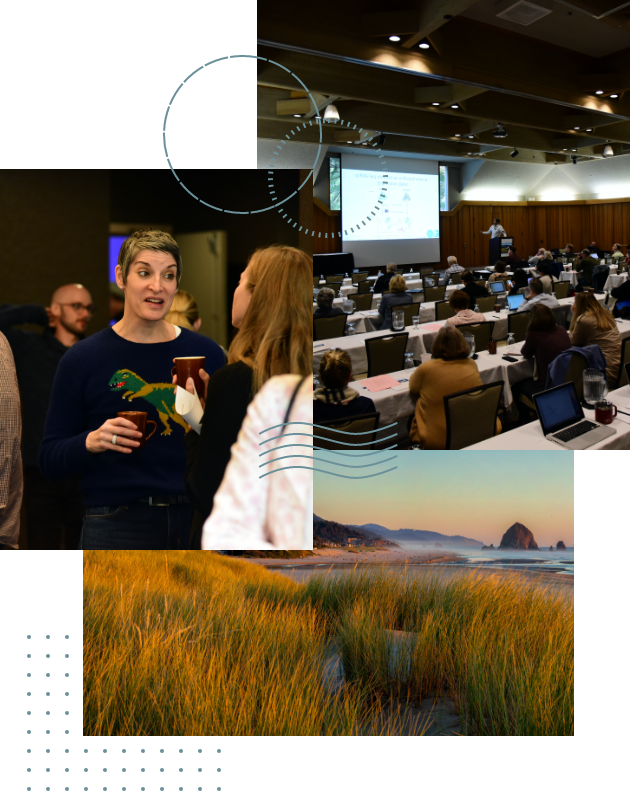
2025 Sponsor Acknowledgement
We thank our generous sponsors for making the 2025 Montagna Symposium on the Biology of Skin possible.
Champion:
| Abeona | 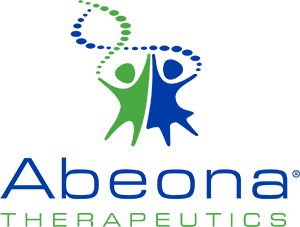 |
| Castle |  |
Sustainer:
| J&J |  |
Benefactor:
| Amgen | 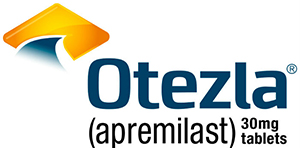 |
Patron:
| Incyte |  |
| Sanofi |  |
| UCB |  |
Associate:
| Allergan/SkinMedica | |
| Oregon Dermatology Society | 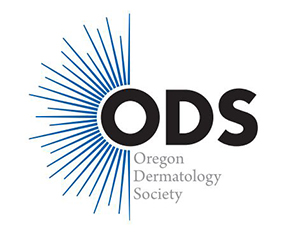 |

